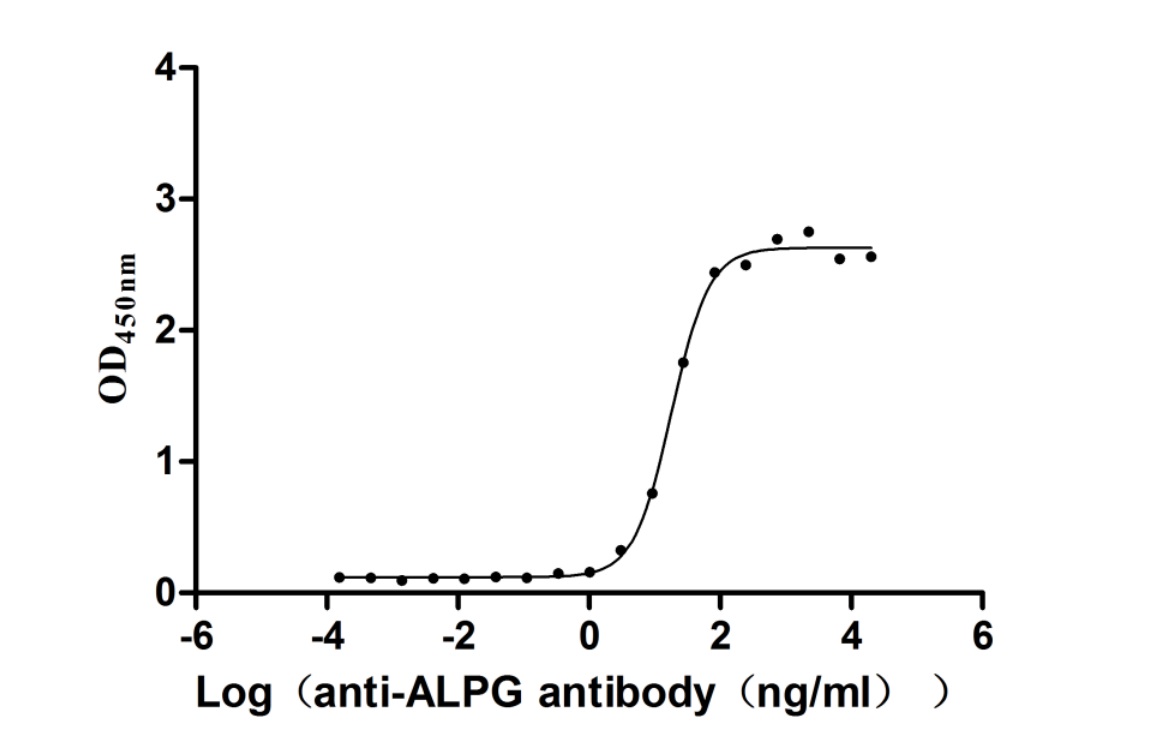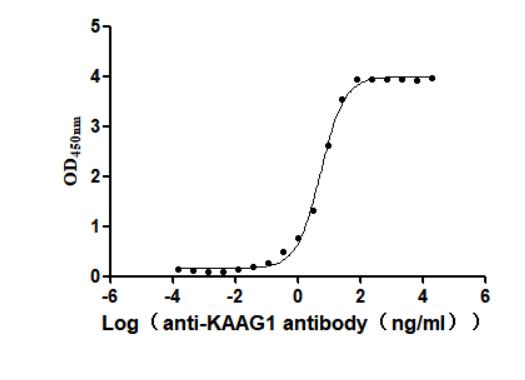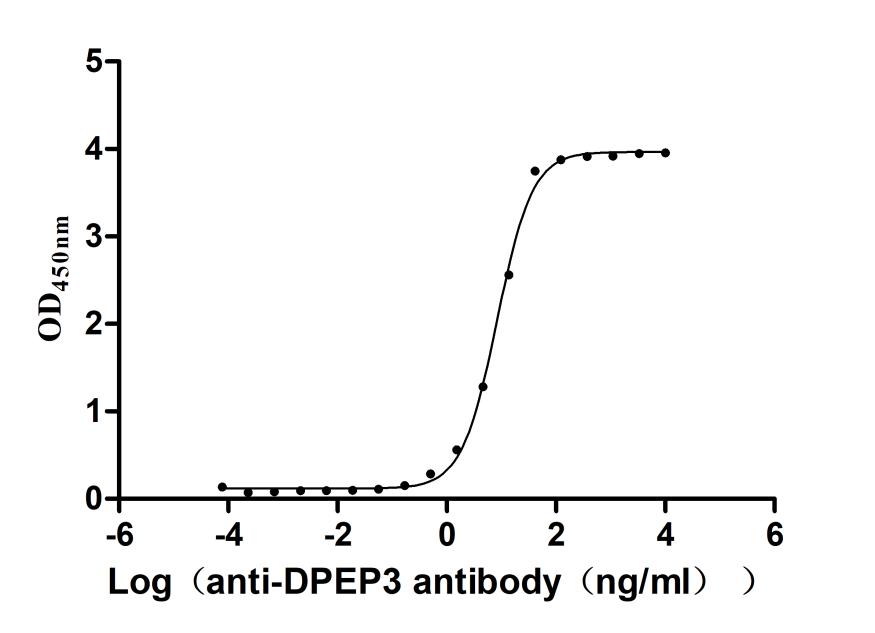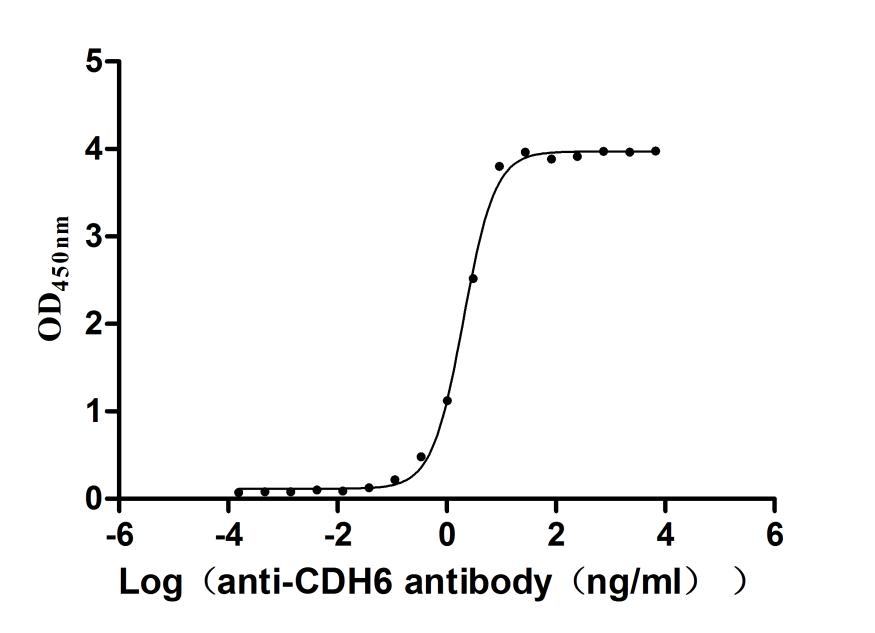Recombinant Mouse Neuroendocrine convertase 1 (Pcsk1)
-
中文名称:小鼠Pcsk1重组蛋白
-
货号:CSB-YP017640MO
-
规格:
-
来源:Yeast
-
其他:
-
中文名称:小鼠Pcsk1重组蛋白
-
货号:CSB-EP017640MO
-
规格:
-
来源:E.coli
-
其他:
-
中文名称:小鼠Pcsk1重组蛋白
-
货号:CSB-EP017640MO-B
-
规格:
-
来源:E.coli
-
共轭:Avi-tag Biotinylated
E. coli biotin ligase (BirA) is highly specific in covalently attaching biotin to the 15 amino acid AviTag peptide. This recombinant protein was biotinylated in vivo by AviTag-BirA technology, which method is BriA catalyzes amide linkage between the biotin and the specific lysine of the AviTag.
-
其他:
-
中文名称:小鼠Pcsk1重组蛋白
-
货号:CSB-BP017640MO
-
规格:
-
来源:Baculovirus
-
其他:
-
中文名称:小鼠Pcsk1重组蛋白
-
货号:CSB-MP017640MO
-
规格:
-
来源:Mammalian cell
-
其他:
产品详情
-
纯度:>85% (SDS-PAGE)
-
基因名:Pcsk1
-
Uniprot No.:
-
别名:Pcsk1; Att-1; Nec-1; Nec1Neuroendocrine convertase 1; NEC 1; EC 3.4.21.93; Furin homolog; PC3; Prohormone convertase 1; Propeptide-processing protease; Proprotein convertase 1; PC1
-
种属:Mus musculus (Mouse)
-
蛋白长度:Full length protein
-
表达区域:111-753
-
氨基酸序列SVQKDSALDL FNDPMWNQQW YLQDTRMTAA LPKLDLHVIP VWEKGITGKG VVITVLDDGL EWNHTDIYAN YDPEASYDFN DNDHDPFPRY DLTNENKHGT RCAGEIAMQA NNHKCGVGVA YNSKVGGIRM LDGIVTDAIE ASSIGFNPGH VDIYSASWGP NDDGKTVEGP GRLAQKAFEY GVKQGRQGKG SIFVWASGNG GRQGDNCDCD GYTDSIYTIS ISSASQQGLS PWYAEKCSST LATSYSSGDY TDQRITSADL HNDCTETHTG TSASAPLAAG IFALALEANP NLTWRDMQHL VVWTSEYDPL ASNPGWKKNG AGLMVNSRFG FGLLNAKALV DLADPRTWRN VPEKKECVVK DNNFEPRALK ANGEVIVEIP TRACEGQENA IKSLEHVQFE ATIEYSRRGD LHVTLTSAVG TSTVLLAERE RDTSPNGFKN WDFMSVHTWG ENPVGTWTLK ITDMSGRMQN EGRIVNWKLI LHGTSSQPEH MKQPRVYTSY NTVQNDRRGV EKMVNVVEKR PTQKSLNGNL LVPKNSSSSN VEGRRDEQVQ GTPSKAMLRL LQSAFSKNAL SKQSPKKSPS AKLSIPYESF YEALEKLNKP SKLEGSEDSL YSDYVDVFYN TKPYKHRDDR LLQALMDILN EEN
-
蛋白标签:Tag type will be determined during the manufacturing process.
The tag type will be determined during production process. If you have specified tag type, please tell us and we will develop the specified tag preferentially. -
产品提供形式:Lyophilized powder
Note: We will preferentially ship the format that we have in stock, however, if you have any special requirement for the format, please remark your requirement when placing the order, we will prepare according to your demand. -
复溶:We recommend that this vial be briefly centrifuged prior to opening to bring the contents to the bottom. Please reconstitute protein in deionized sterile water to a concentration of 0.1-1.0 mg/mL.We recommend to add 5-50% of glycerol (final concentration) and aliquot for long-term storage at -20℃/-80℃. Our default final concentration of glycerol is 50%. Customers could use it as reference.
-
储存条件:Store at -20°C/-80°C upon receipt, aliquoting is necessary for mutiple use. Avoid repeated freeze-thaw cycles.
-
保质期:The shelf life is related to many factors, storage state, buffer ingredients, storage temperature and the stability of the protein itself.
Generally, the shelf life of liquid form is 6 months at -20°C/-80°C. The shelf life of lyophilized form is 12 months at -20°C/-80°C. -
货期:Delivery time may differ from different purchasing way or location, please kindly consult your local distributors for specific delivery time.Note: All of our proteins are default shipped with normal blue ice packs, if you request to ship with dry ice, please communicate with us in advance and extra fees will be charged.
-
注意事项:Repeated freezing and thawing is not recommended. Store working aliquots at 4°C for up to one week.
-
Datasheet :Please contact us to get it.
靶点详情
-
功能:Involved in the processing of hormone and other protein precursors at sites comprised of pairs of basic amino acid residues. Substrates include POMC, renin, enkephalin, dynorphin, somatostatin, insulin and AGRP.
-
基因功能参考文献:
- Study reveals a significant reduction of tachykinin and opioid neuropeptides level in proprotein convertase 1 and proprotein convertase 2 mutant mouse spinal cords. PMID: 28476408
- Oxygen and glucose deprivation or middle cerebral artery occlusion stress caused substantial cell death in a dose-dependent manner. With the increasing OGD dose, proPC1 and PC1 proteins gradually increased. In vivo the proPC1 and PC1 expressions presented with a peak at 4-h and then decreased at 24-h reperfusion. The results suggest that the increasing PC1 expression promoted the transformation of proCgA into CgA or small PMID: 29198128
- investigation of the pathogenesis of obesity in the PC1/3-N222D mouse model and whether this molecular mechanism also applies to common and rare human PCSK1 mutations PMID: 26786350
- These pathways are consistent with previously reported behavioral and biochemical phenotypes that typify mice lacking ENT1. Moreover, we validated decreased expression of the SNARE complex protein VAMP1 (synaptobrevin-1) in the dHip as well as decreased expression of pro-dynorphin (PDYN), neuroendocrine convertase (PCSK1), and Leu-Enkephalin (dynorphin-A) in the nucleus accumbens PMID: 27998058
- findings suggest that the major neuroendocrine features of Prader-Willi syndrome are due to PC1 deficiency PMID: 27941249
- macrophages from PC1/3 KO mice and rat PC1/3-KD NR8383 macrophages secreted more pro-inflammatory cytokines such as TNF-alpha, IL6, IL1alpha and CXCL2. PMID: 26778167
- PC1 and PC2 are involved in the C-terminal processing of protachykinin peptides and suggest a major role in the maturation of the protachykinin-1 protein PMID: 26373413
- Binding of MAGP2 to microfibrils is regulated by proprotein convertase cleavage. PMID: 25153248
- Data indicate that the mutant PC1/3-N222D protein coimmunoprecipitates with wildtype(WT) prohormone convertase 1/3 (PC1/3) and exerts a modest effect on intracellular retention of the WT enzyme. PMID: 24828610
- Loss of PC1 in mice showed a dramatic decrease in the biosynthesis of all proTRH-derived peptides analyzed including TRH and its immediate precursor TRH-Gly. PMID: 22421509
- PC1/3 also has an important role in the regulation of the innate immune system, most likely through the regulation of cytokine secretion in macrophages. PMID: 22396549
- Reports demonstrate that mouse proprotein convertase 1/3 (mPC1/3) has a lag phase of activation by substrates that can be interpreted as a hysteretic behavior of the enzyme for their hydrolysis. PMID: 21935423
- Intraislet production of GLP-1 by activation of prohormone convertase 1/3 in pancreatic alpha-cells in mouse models of ss-cell regeneration. PMID: 20657753
- Data suggest that PC1/3 and many convertase-specific properties are attributable less to convertase-specific catalytic cleft residues than to convertase-specific domain interactions. PMID: 20610561
- These results demonstrate a prominent role for cathepsin L, jointly with PC1/3 and PC2, for production of dynorphins in brain. PMID: 19837164
- PC1 expression can promote normal and neoplastic mammary development and growth and suggests that proprotein convertases may be important etiological factors in human breast neoplasia PMID: 20052009
- The presence of PC and GOAT in the cells, as well as n-octanoic acid in the culture medium, was necessary to produce n-octanoyl ghrelin. PMID: 19628676
- expression pattern of IAPP and prohormone convertase 1/3 reveals a distinctive set of endocrine cells in the embryonic pancreas PMID: 12049785
- hydrophobic patch in the PC1 pro-domain is involved in the binding interface with its cognate catalytic domain and also reveals potential mechanisms for the acid-induced dissociation of the complex between pro- and catalytic domains PMID: 12095256
- severe block in processing of proinsulin to insulin accompanied by elevation of des-64,65 proinsulin intermediates in islets of mice lacking prohormone convertase 1/3 PMID: 12136131
- disruption of PC1/3 expression in mice causes dwarfism and multiple neuroendocrine peptide processing defects PMID: 12145326
- Processing of pro-CART revealed that PC2 is more potent than PC1/3 in generating bioactive CART I; bioactive CART II is solely generated by PC2; and PC1/3 is predominantly active in liberating the two intermediate CART fragments, 33-102 and 10-89. PMID: 12584191
- The Arg617-Arg618 residues were found to play a prominent role in targeting PC1 to secretory granules PMID: 12787078
- model of the membrane topology of the prohomone convertase PC3, where it is anchored to lipid rafts in secretory granule membranes via the transmembrane domain. PMID: 12950171
- Prosomatostatin (PC1) is a physiologic substrate of proprotein convertase 2 (PC2) in vivo and is required for the generation of brain somatostatin-14 from precursor. PMID: 14614908
- PC1 is essential for intestinal proglucagon processing in vivo and, thereby, plays an important role in production of the incretin hormone GLP-1 and the intestinotrophic hormone GLP-2. PMID: 14630721
- Efficient production of mature GHRH from pro-GHRH is a stepwise process mediated predominantly by furin at the N-terminal cleavage site followed by PC1/3 at the C terminus. PMID: 14684599
- PC1/3 is important for processing of proIAPP at the COOH-terminus. PMID: 14693708
- ProSAAS and prohormone convertase 1 are broadly expressed during mouse development PMID: 15018810
- This review highlights the decisive role played by prohormone convertase (PC)1 in the maturation of hormonal cholecystokinin in intestinal endocrine cells, compared to PC2, which governs the processing of cholecystokinin precursor in cerebral neurons. PMID: 15075450
- Prohormone convertase 1 plays a key role in the processing of multiple neuroendocrine peptide precursors. PMID: 15779921
- an amino acid substitution in the PC1/3 propeptide can induce significant modifications of its inhibitory profile toward furin PMID: 16407210
- Prohormone convertase 1/3 is essential for processing of the glucose-dependent insulinotropic polypeptide precursor PMID: 16476726
- PC1 has a role in obesity, hyperphagia and increased metabolic efficiency PMID: 16644867
- a Pcsk1 deletion/insertion is associated with homozygous embryo preimplantation lethality, mutant allele preferential transmission and heterozygous female susceptibility to dietary fat PMID: 17490633
- PC1/3, through its various domains, is capable of controlling its enzymatic activity in all regions of the cell that it encounters PMID: 17565604
- Analysis of the subcellular distribution of fusion proteins containing the C-terminal domains of PC1/3, PC2 and PC5/6A confirmed that all three domains have the capacity to redirect secreted protein to the granule-containing cytoplasmic extensions. PMID: 17645548
- Expression of PC1/3 rather than PC2 in alpha-cells induces GLP-1 and GLP-2 production and converts the alpha-cell from a hyperglycemia-promoting cell to one that lowers blood glucose levels and promotes islet survival. PMID: 17698597
- PC1/3 governs the endocrine and PC2 the neuronal processing of proCCK, whereas PC5/6 contributes only to a modest endocrine synthesis of CCK-22. PMID: 18096669
- mouse G-cells express PC1/3, 2 and 5/6. The concentration of progastrin in PC1/3-null mice was elevated 3-fold. The complementary cleavages of PC1/3 and 2, however, suffice to explain most of the normal endoproteolysis of progastrin. PMID: 18554181
- Expression of PCSK1 in mouse small intestine. PMID: 18706454
- Regulation and role of PC1 by corticotropin-releasing factor in mouse pituitary PMID: 18940205
- These results provide a structure-function analysis of a dense core secretory granules -sorting domain of PC1/3 protease. PMID: 19376969
显示更多
收起更多
-
亚细胞定位:Cytoplasmic vesicle, secretory vesicle. Note=Localized in the secretion granules.
-
蛋白家族:Peptidase S8 family, Furin subfamily
-
数据库链接:
KEGG: mmu:18548
STRING: 10090.ENSMUSP00000022075
UniGene: Mm.1333
Most popular with customers
-
Recombinant Macaca fascicularis Delta-like protein 3 (DLL3), partial (Active)
Express system: Mammalian cell
Species: Macaca fascicularis (Crab-eating macaque) (Cynomolgus monkey)
-
Recombinant Human C5a anaphylatoxin chemotactic receptor 1 (C5AR1)-VLPs (Active)
Express system: Mammalian cell
Species: Homo sapiens (Human)
-
Recombinant Macaca fascicularis CD93 molecule (CD93), partial (Active)
Express system: Mammalian cell
Species: Macaca fascicularis (Crab-eating macaque) (Cynomolgus monkey)
-
Recombinant Human Claudin-6 (CLDN6)-VLPs, Fluorescent (Active)
Express system: Mammalian cell
Species: Homo sapiens (Human)
-
Recombinant Human Alkaline phosphatase, germ cell type (ALPG) (Active)
Express system: Mammalian cell
Species: Homo sapiens (Human)
-
Recombinant Human Kidney-associated antigen 1(KAAG1) (Active)
Express system: Baculovirus
Species: Homo sapiens (Human)
-
Recombinant Macaca fascicularis Dipeptidase 3(DPEP3) (Active)
Express system: Mammalian cell
Species: Macaca fascicularis (Crab-eating macaque) (Cynomolgus monkey)
-
Recombinant Mouse Cadherin-6(Cdh6),partial (Active)
Express system: Mammalian cell
Species: Mus musculus (Mouse)


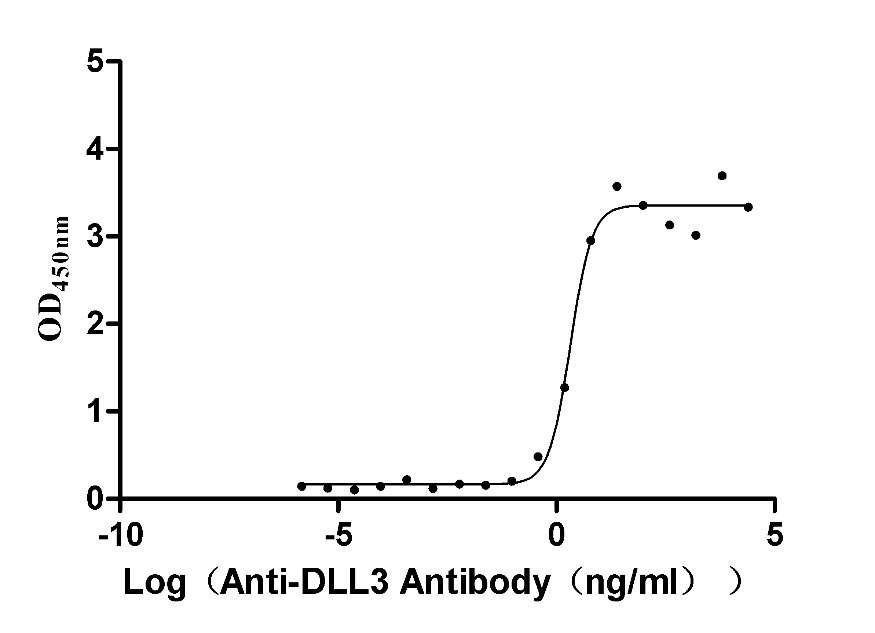
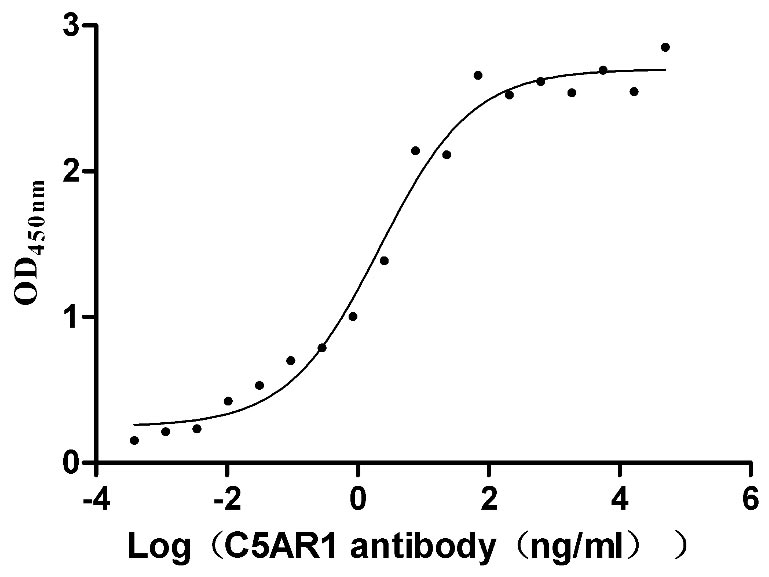
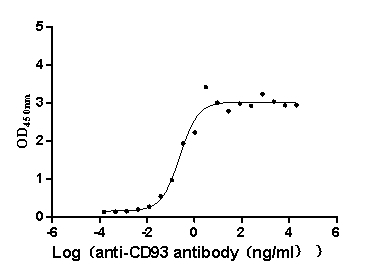
f4-AC1.jpg)
